What’s the difference between conventional coffee and organic coffee? –And why does Share Collective source ONLY organically grown coffees?
Share Collective & Roastery, in its efforts to improve the economic capacities, nutrition and education of third world communities, is unashamedly health conscious, and therefore, sources ONLY organically grown coffees. Here’s why:
First, conventional coffee is among the most heavily chemically treated foods in the world. In coffee’s production, synthetic fertilizers, pesticides, herbicides, and fungicides are employed to maximize crop yields. Not only does the environment suffer from this toxic overload, but so do the people who live where coffee grows.
 Farmers and their families are exposed to high levels of toxins while spraying the crops and while handling them during harvest. The surrounding communities are also impacted through chemical residues in the air and water. Why do producers expose themselves to these high levels of potentially cancer-causing chemicals? The cost of production has increased while the price per pound has not appreciably increased since the 1980’s. Also, conventionally grown coffee yields nearly 45% more than coffee grown organically, a compelling motivator for producers living at or below the poverty line.
Farmers and their families are exposed to high levels of toxins while spraying the crops and while handling them during harvest. The surrounding communities are also impacted through chemical residues in the air and water. Why do producers expose themselves to these high levels of potentially cancer-causing chemicals? The cost of production has increased while the price per pound has not appreciably increased since the 1980’s. Also, conventionally grown coffee yields nearly 45% more than coffee grown organically, a compelling motivator for producers living at or below the poverty line.
Certified organic coffee employs no synthetic fertilizers, insecticides, herbicides or fungicides chemicals used in growing or production, which means chemical-free beans, air, land, and water. The coffee is grown with only organic fertilizers, such as coffee pulp, chicken manure, or compost. There is a loss of yield but the outcome is a healthier food product. Our coffees are either fully certified organic or on their way toward certification, employing "clean" methods.
Second, most conventionally grown coffee plants are hybrids, developed to flourish in open sun. Coffee naturally prefers the shade, but a crop grown in thick forest is more difficult to tend and harvest, and cannot be planted as densely.
Forests are cleared for conventionally grown coffee to make room for open fields to grow closely planted sun-loving coffee varieties. Production increases, but the wild ecosystem of flora and fauna is demolished. Natural pest-deterrents, like birds and lizards, are left without their natural habitats – and coffee-destructive insects overpopulate, leading to the need for more pesticide use. And without the natural fertilizer that would typically accumulate over time in these ecosystems (bird droppings, leaf litter, and natural decay) the use of chemical fertilizer increases.
When it rains, the lack of tree cover increases water runoff. Soil washes away, and with it go nutrients, eventually eroding and depleting the soil. The rainwater carries away not just the soil, but all of the chemicals it has been treated with, and both end up in local water supplies.
All of our organically grown coffee is grown under the shade of lush forests, providing a home for wild plants and animals, sustaining soil fertility, and keeping unique regional ecosystems alive. These forested farms are more resilient and better equipped to handle unusual weather patterns that are a result of hurricane seasons and changing climates, making them a safer investment for farmers and their futures. Hundreds of thousands of acres of South and Central American forests have already been demolished for various industries, but Share Collective has partnered with co-ops that are working to restore the land to its natural forestation, while growing heirloom varietal, organic coffees.
So what can you do?
The organic coffee market has grown according to increased demand from people who want to drink something they can feel good about. Industries can and do change based on the choices that you make in the grocery store or at your favorite café – so you can vote with your mug! By purchasing organic coffee where you can find it (and demanding it where you can’t), you support systems that value healthy ecosystems, sustainable methods, and superior coffee. Now that’s good taste!
References:
-
Aguilar-Stoen, M., et al. 2011. The emergence, persistence, and current challenges of coffee forest gardens: a case study from Candelaria Loxicha, Oaxaca, Mexico. Society and Natural Resources. 24:1235-1251.
-
Staver, C., et al. 1995. Selective weeding: ground cover and soil conservation in coffee in Nicaragua. ILEIA Newsletter. 11[3]:22.
-
Lee, F. 2002. Statement of Frank Lee. FASOnline. July 24.
-
Fieser, E. 2009. Organic coffee: why Latin America’s farmers are abandoning it. Christian Science Monitor. December 29.
-
Donovan, J. and N. Poole.2014.Changing asset endowments and smallholder participation in higher value markets: evidence from certified coffee producers in Nicaragua. Food Policy. Volume 44:1-13
-
Soto-Pinto, L., I. Perfecto, and J. Caballero-Nieto. 2002. Shade over coffee: its effects on berry borer, leaf rust and spontaneous herbs in Chiapas, Mexico. Agroforestry Systems. 55:37-45.
-
Neill, J. 2013. Central American coffee rust crisis: no easy answers. STiR Tea & Coffee Industry International. July/August.
-
Beuchelt, T. D., and M. Zeller. 2011. Profits and poverty: certification’s troubled link for Nicaragua’s organic and fairtrade coffee producers. Ecological Economics. 70:1316-1324.
-
Crop Protection Research Institute, CropLife Foundation, 1156 15th Street, NW #400 Washington, DC 20005

